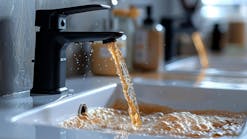What to Look for in a Lab: Value Added Services
Building a beneficial partnership with a laboratory
There are many components to operating a successful bottled water business. Selecting suppliers of critical services, the quality of supplies used in production and the providers of services all have a direct impact on product water quality. Choosing the right laboratory can provide the bottler with a resource for regulatory compliance, quality control troubleshooting and technical information.
Because water test results showing that a product complies with regulatory limits is vital to maintaining state licenses to sell that product, laboratory services is a critical component of the bottling business. These test results are also the documentation of quality that customers are looking for from an independent, third-party resource.
Industry Expertise
Providers of critical services, such as hydrogeologists, equipment suppliers and laboratories should have experience in the bottled water industry. If they are familiar with issues that impact bottled water differently than other packaged food products or water segments, it can help avoid problems and save money in the long run.
Consultative Services
A laboratory that is committed to the bottled water industry should monitor the pulse of regulations. There is constant regulatory activity surrounding bottled water production, labeling and water quality. The future will likely bring new testing requirements as the U.S. Environmental Protection Agency adds parameters to the National Primary Drinking Water Regulations, leading to U.S. Food and Drug Administration promulgation of new bottled water regulations. Bottlers who are not able to devote internal resources to tracking of these complex regulations should align themselves with consultants or associations that can provide access to updates, interpretation and advice on compliance procedures.
Critical Information Provided
A competent laboratory should know what information is required by regulations, needed for quality control and wanted for other reasons. Just as someone would expect their doctor to be an expert on health issues, the laboratory should be a trusted resource for water testing advice about analytical requirements, reporting requirements, potential sources of contamination and resources available for further support.
The laboratory report is the finished product being presented to the bottler summing up the results of the various analytical methods performed. The report must meet the bottler’s needs by providing all of the necessary information to satisfy both regulators and customers, such as:
- All analytes required as applicable to the bottler’s circumstances, reported in a clear, concise format;
- Methodology used, including analytical limits;
- Detailed sample identifying information; and
- Regulatory limits for comparison to test results, in order to determine sample compliance.
Understanding the Data
Laboratory reports can, at first glance, appear to be complicated and confusing. In order to address consumer questions regarding product quality, it is important to understand the basic components, terms and abbreviations used in the laboratory report.
For explanations of the information contained in laboratory reports, view the extended version of this article online at: www.wqpmag.com/ lm.cfm/wq091006.
Laboratory Credentials
In order for the water test results to be useful to satisfy the bottler’s regulatory requirements, the laboratory must also have the proper qualifications and certifications. Some states require that bottlers applying for a license in their state use a laboratory that holds direct certification in that state. Laboratories may hold direct state certifications, have state certification through reciprocity with another state where they are already certified or hold broader national certifications. Many of these certifications require annual inspection by a representative of the certifying body, regular proficiency sample analyses, applications and fees.
Laboratories with a wide range of capabilities, certifications and consultative services cannot offer the cheapest price on the market. It is important to evaluate the real value a laboratory brings to the business relationship in order to find quality services at a fair price. Bottlers should have a good working relationship with their lab, and the lab should be an ally who cares about the industry, not just a routine service provider.
Download: Here


